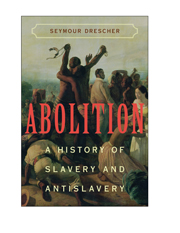Book contents
- Frontmatter
- Contents
- Preface
- PART ONE EXTENSION
- PART TWO CRISIS
- 4 Border Skirmishes
- 5 Age of the American Revolution, 1770s–1820s
- 6 Franco-American Revolutions, 1780s–1820s
- 7 Latin American Revolutions, 1810s–1820s
- 8 Abolitionism without Revolution: Great Britain, 1770s–1820s
- PART THREE CONTRACTION
- PART FOUR REVERSION
- Index
- References
4 - Border Skirmishes
Published online by Cambridge University Press: 04 August 2010
- Frontmatter
- Contents
- Preface
- PART ONE EXTENSION
- PART TWO CRISIS
- 4 Border Skirmishes
- 5 Age of the American Revolution, 1770s–1820s
- 6 Franco-American Revolutions, 1780s–1820s
- 7 Latin American Revolutions, 1810s–1820s
- 8 Abolitionism without Revolution: Great Britain, 1770s–1820s
- PART THREE CONTRACTION
- PART FOUR REVERSION
- Index
- References
Summary
Despite its apparent solidity and dynamism, the Atlantic system of slavery could not remain in equilibrium. Never had so many settlements been created in which from half to nine-tenths of the population were chattel. Never had enslavement been so rigorously confined to groups so physically distinguished from each other. Above all, never before had the asymmetry between the legitimacy of the institution in one part of an empire and its illegitimacy in another been so jarringly juxtaposed. In the Old World, the institution was not dominated by the demands for new mass-produced commodities. Male slaves in Afro-Asia also continued to perform political, military, and court duties as well as domestic functions. Beyond the household domains of rulers, slaves were devoted to demands for small-scale labor and for sexual and reproductive services. Women represented a far greater percentage of the total slave population than they did in the slave population of the New World. Throughout Afro-Asia, slaves remained deeply rooted in the legal and institutional structures of society. In sub-Saharan Africa, slaves were still the only form of private property recognized in law. In Moslem-dominated North Africa, the institution was consensually regarded as sanctioned by Islamic doctrine and tradition. Therefore, beyond the reach of European power and economic incentives, slavery did not exhibit the growing institutional disequilibrium of the Euro-Atlantic world.
- Type
- Chapter
- Information
- AbolitionA History of Slavery and Antislavery, pp. 91 - 114Publisher: Cambridge University PressPrint publication year: 2009



